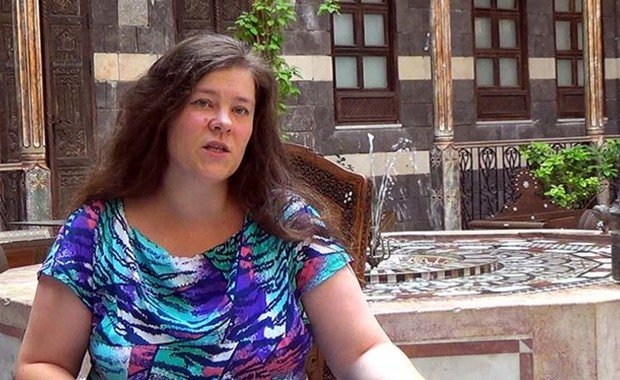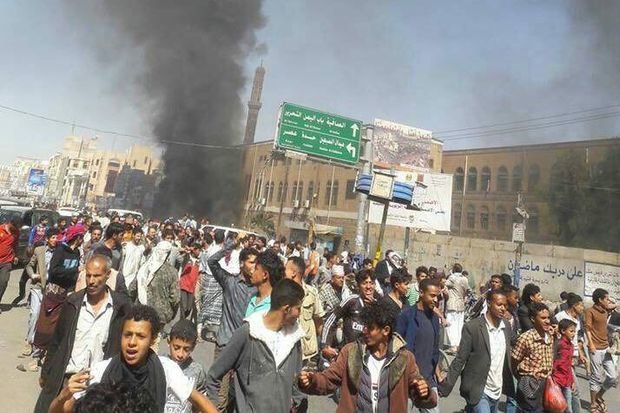Anhar Kochneva: ''The Houthis have made many new enemies in Yemen by Saleh’s murder''
The column of the Middle Eastern journalist about the slain ‘’father of the nation’’ of Yemen, Ali Abdullah Saleh, and an interview that didn’t take place
The assassination of the former president of Yemen, Ali Abdullah Saleh, will turn into serious problems for the Houthis, believes Anhar Kochneva, a columnist for Realnoe Vremya from the Middle East. The news about the death of the influential statesman from the Arab country has discouraged our journalist as earlier she had agreed with him on an interview. In the newspaper column written for our newspaper, Kochneva tells who Saleh was for the Yemenis and what is happening in the country beset with a civil war.
An interview that didn't take place
Saleh agreed to meet with me to make several interviews in the first half of this year. But it is difficult even for me to go in summer to such a hot country as Yemen. For this autumn I had plans of my own. We agreed for the period after the end of January, when I have a planned load decrease. Although the beginning of December was mentioned as an alternative time for the trip.
A person who was responsible for organizing my trip wrote me that he could not think up how to bring me into the country. The thing is that most roads from Aden, as he said, are controlled by the ISIS (the organization banned in Russia — editor's note). And the airport Sana'a itself has long been bombed by Saudi Arabia. We hoped to come up with something before January. For example, to fly via Oman, but then I'd have to go through the whole Yemen by land. But there it could happen anything.

''Saleh agreed to meet with me to make several interviews in the first half of this year. But it is difficult even for me to go in summer to such a hot country as Yemen.'' Photo: anhar.ru
The traditions of the 'genuine Arabs'
In order to understand who Ali Abdullah Saleh was, it is necessary to understand what Yemen is. The Yemenis, along with the Omanis, are considered to be 'true Arabs': it is the people who maintain traditional way of life. But it is a two-edged sword: frankness and loyalty on the one hand, and archaic character and even savagery in something — on the other. Saleh ruled the country where people could, for example, capture tourists in hostage only in order to force the government to build a new road to a village. The hostages were fed as the best and dear guests, but it still was hardly pleasant for a hostage who was kept there by force. It is because of these 'customs', the foreigners had to go in a number of Yemeni provinces with armed guards.
Besides, internecine civil wars have already taken place in Yemen in its modern history (remember that the first part of the series Russian Translation develops in the background of another such conflict). And you will understand what a difficult country the slain politician had to rule for 33 years. He alone, apparently, was able to cope. The real 'father of the nation', kidding apart. He is one who was respected and who was able to find common groud. Apparently, this time he also decided to do it in the interests of the people, but he was not allowed.
The situation in the country is stalemate: the roads, as we remember, are in the hands of the extremists. Saudi bomb attacks destroy infrastructure, historical monuments, kill and wound people. Because of the unsanitary conditions the country is experiencing an outbreak of cholera and many other infectious diseases. A cease-fire was necessary. But the Houthis — his former allies — didn't want it.

''The situation in the country is stalemate: the roads, as we remember, are in the hands of the extremists. Saudi bomb attacks destroy infrastructure, historical monuments, kill and wound people.'' Photo: twitter.com
The Houthis have made new enemies
Now my friend, who invited me to this country and agreed my meeting with Ali Abdullah Saleh, is trying to leave the dangerous region. They are already going around the city with a list of 'unwanted ones' and kill them immediately or take to kill later. Arab media report that more than 200 soldiers from the troops of Saleh and many people from the leadership of his party have already been killed.
An acquaintance living in Yemen writes that yesterday she tried to recapture the seized near her house soldiers, but the Houthis didn't listen to her, pushed her back into the house. She's run out of bread for already three days, water is running out. In the city and especially in the diplomatic quarter, where her house and the palace of the president of the country are located, there is reigning terror, which reinforce Saudi bombings: the palace is being in the hands of the Houthis.
How will this turn of history end for Yemen? It's hard to say. One thing is clear: the Houthis have made many new enemies. The murder of the leader of the clan for Yemen is very serious. This means that there will be much blood: according to local custom, taken out traditional dagger can be returned into the sheath only after staining it with the blood of the offender.